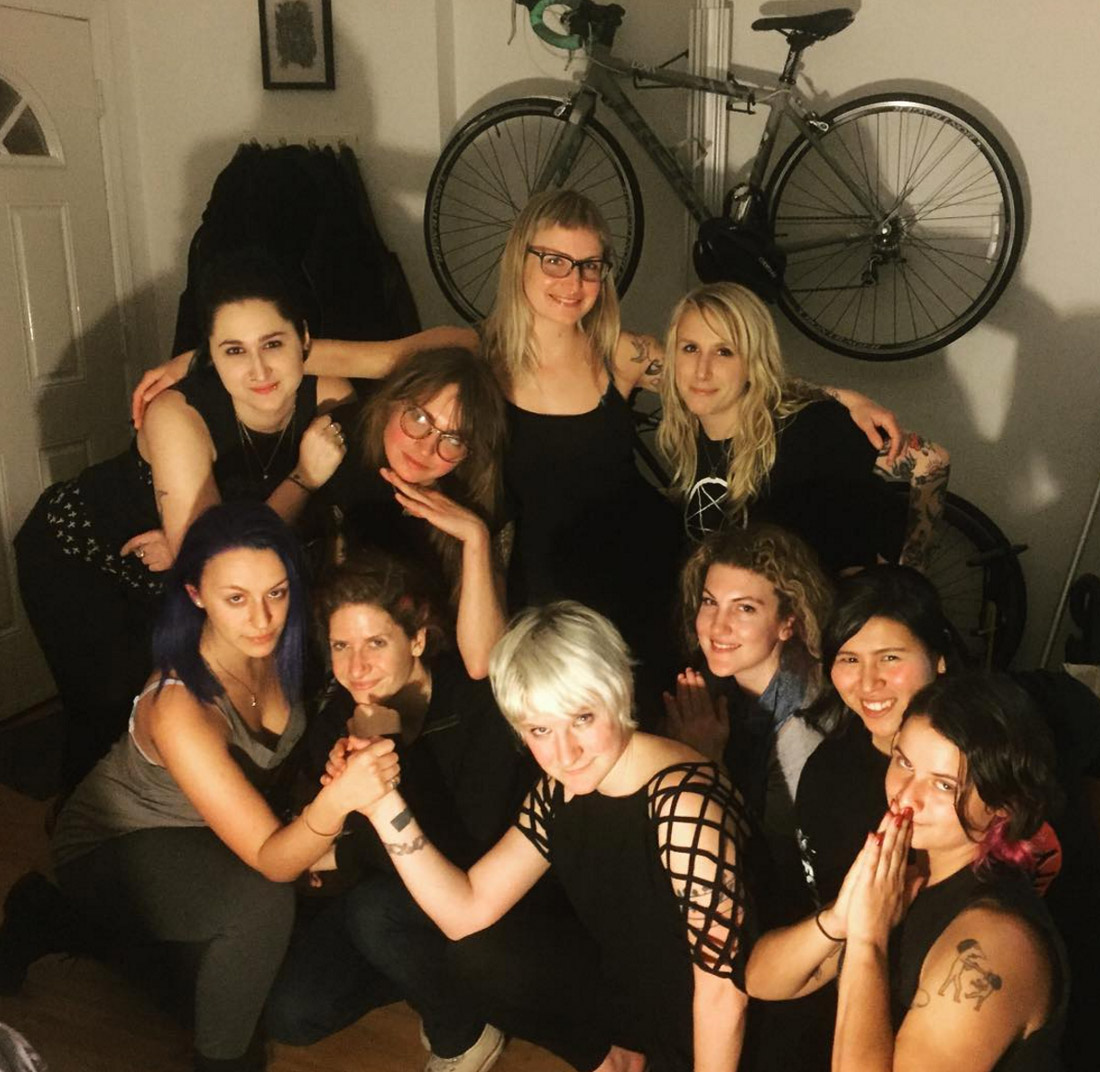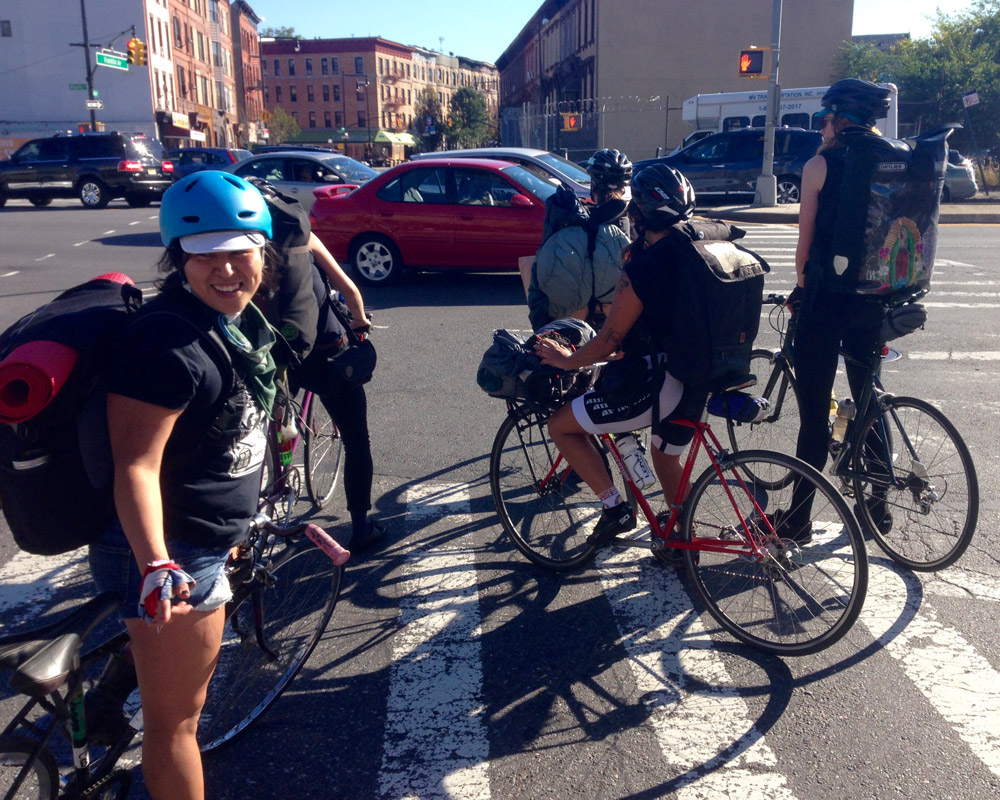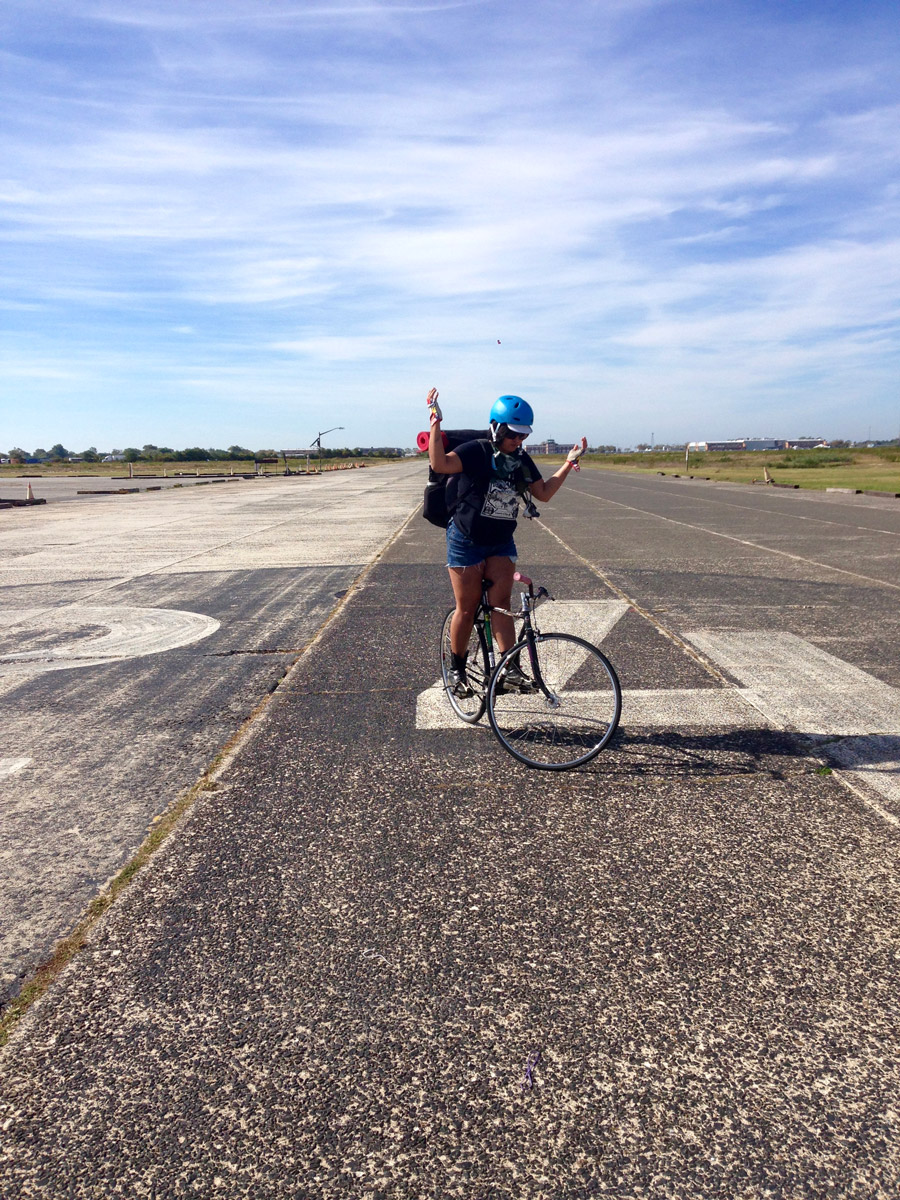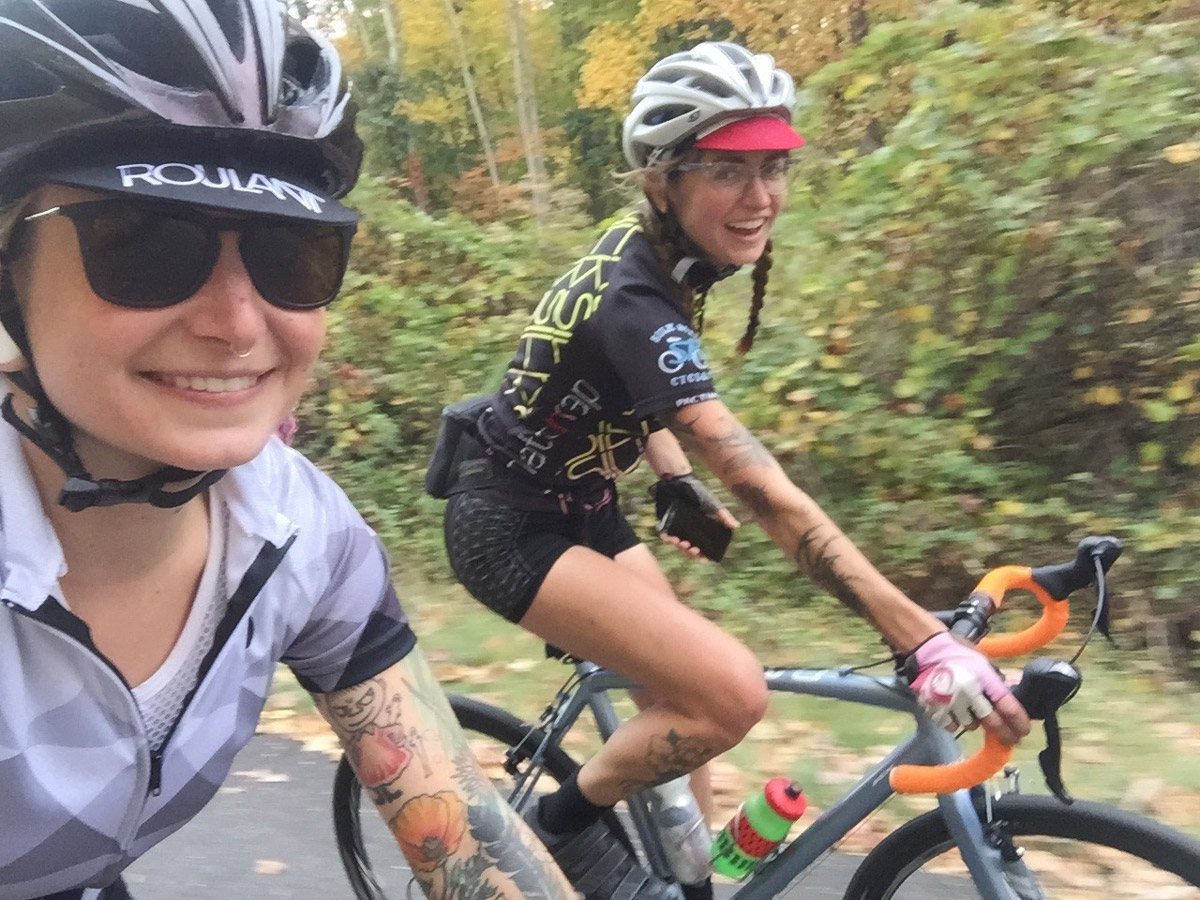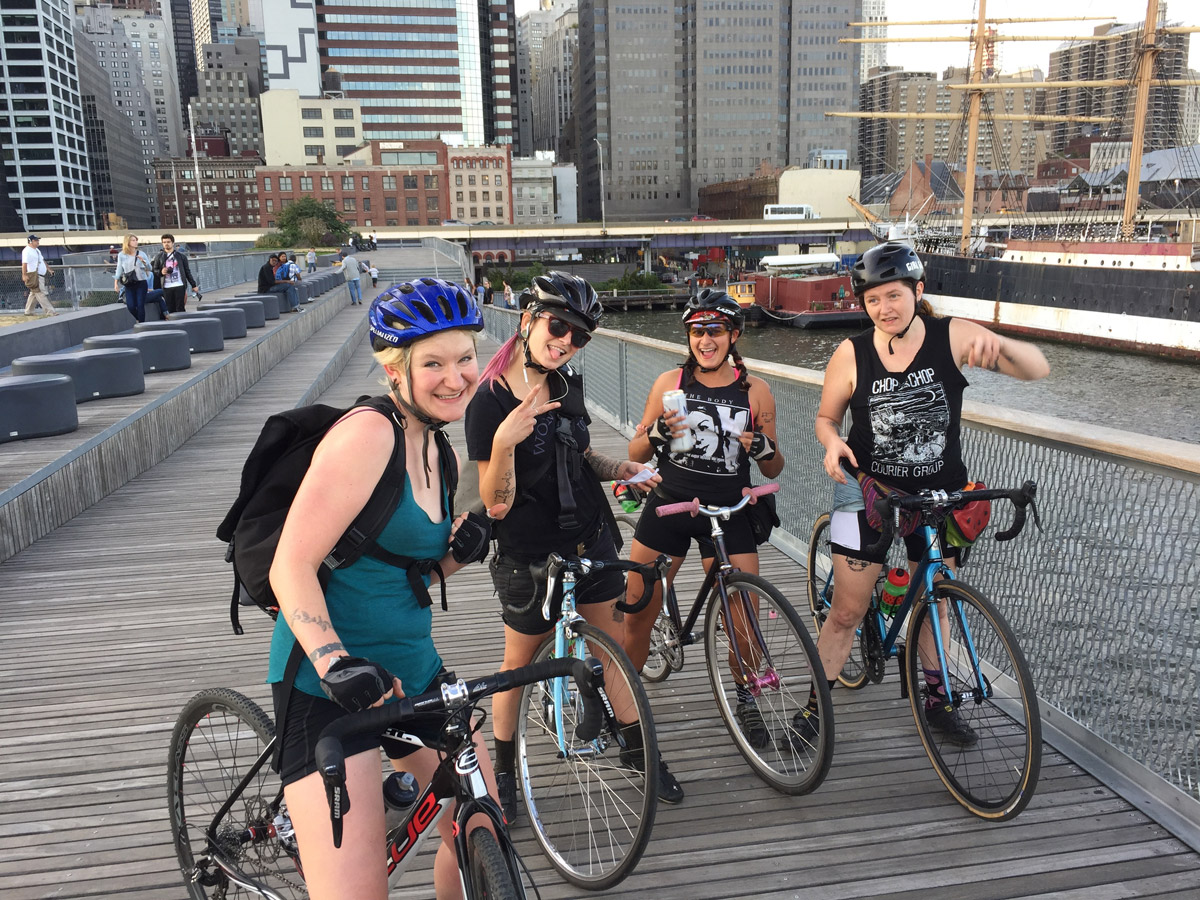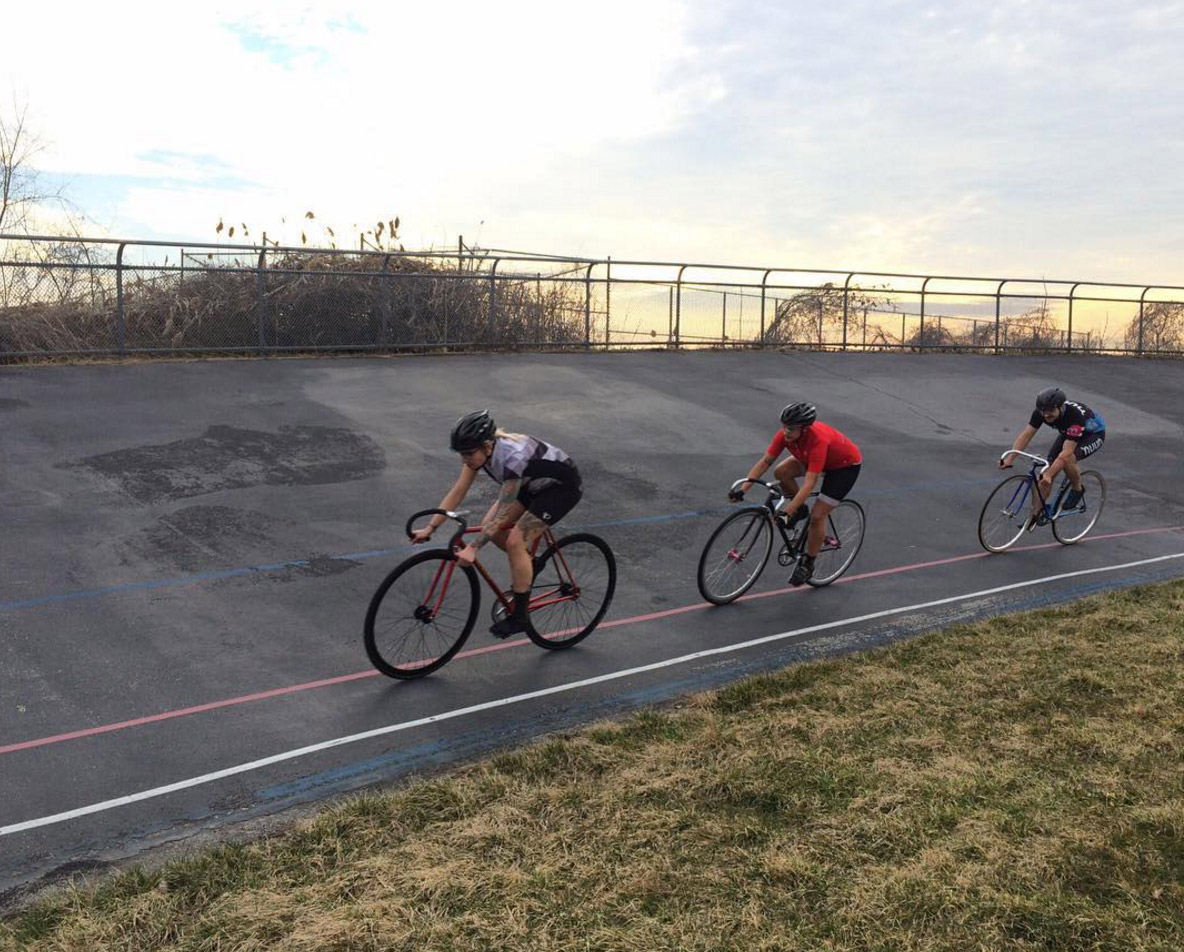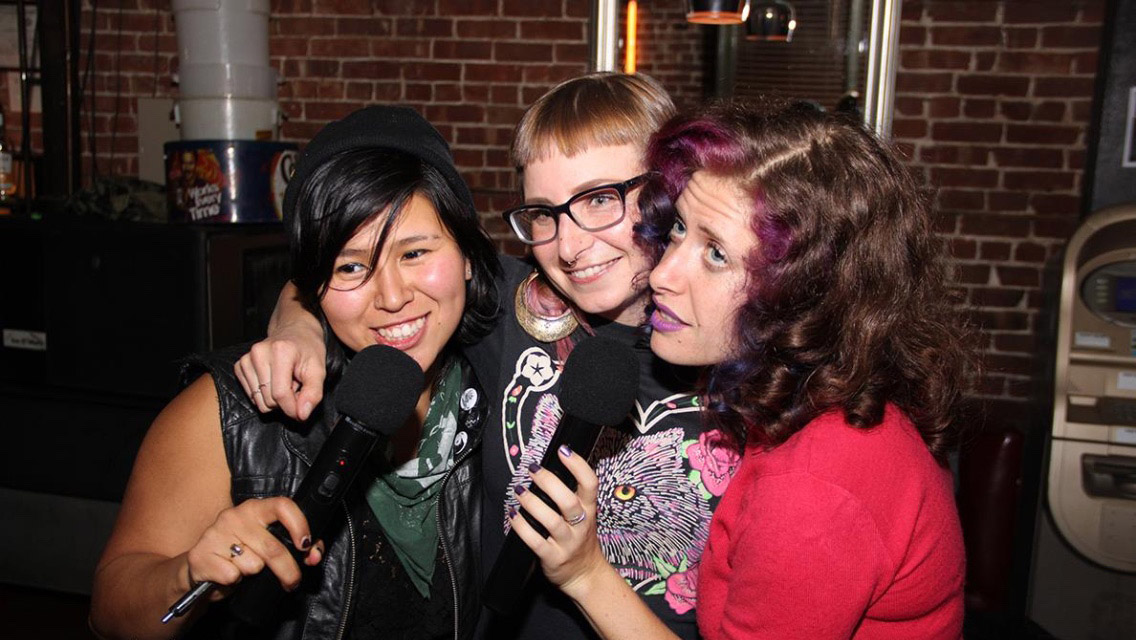When I wrote Koochella’s “So You Want To Start A Women’s Bike Racing Team,” I did it after speaking with the women of what would become Formula Femme, a new women’s track team in Brooklyn. Here was a group of women who were basically exactly where we were when we started our team, with the same optimistic goals for improving their community and velodrome.
What was exciting was that this was the third or fourth group of women who had contacted us looking for advice. At a time when communities are scratching their heads and trying to figure out how to grow their women’s field, here were multiple organizations of women from all parts of the US (and UK) with little to no racing experience who wanted to take on this charge. They want to join their communities as forces for positive change, to be ambassadors and new energy for the new women racers that their communities said they desperately wanted.
It should be easy, right? Plug them into the community and let them rock out. Everyone wins. Everyone should be stoked. Right?
As we’ve worked with them to help them get established and organized, we’ve unfortunately watched them go through the same struggles Koochella went through when we were trying to get ourselves together. It’s hard to build the women’s field in parallel to building your team and yourselves as new athletes. It’s even more challenging when you’re faced with outside pressure and negativity. But in speaking with Zoë Leverant, Captain of Formula Femme, it’s clear that the organization’s white hot passion for cycling and desire to bring new people into the sport is pushing them forward.
Given the familiar experiences, we thought it would be important to interview Zoë in order to capture a beginner women’s team at the cusp of their first season. These experiences, for as intense as they are for those in the midst of them, are not unique to this team. They represent a pattern many new women’s teams seem to experience.
For women seeking out a similar path, her experiences serve as a reference to show that the obstacles are shared. You’re certainly not alone in your work to overcome them. And they can be overcome.
To those with a more external perspective, there is an opportunity to recognize these obstacles and work to consciously remove them. There are champions of the sport on the cusp of joining the community everywhere- and we can all do a better job in setting them up for success.
With that all said, there is a lot to be excited for in NYC women’s track racing. Formula Femme’s got big goals, and they’ve got the drive to knock them out of the park. We can’t wait for them to join the track racing community.
Get stoked.
——————-
ANNA SCHWINN: The story that’s compelling right now on an National amateur competitive level is women getting into sport full-bore from scratch, from nothing. USA Cycling and every single Local Association for USAC is scratching their heads right now, like “Where do we find women? Why can’t we just inject them into our races and have them stay?”
Honestly, if that’s how easy you think it is, you’re missing all of these larger, more complex political issues that surround racing and the racing community. So it is important to tell the story of beginner teams, especially yours and where you are right now where, “everyone is telling us that they want us around, but they aren’t backing us up and we need support.” It’s the same story over and over again, with every women’s team like this I’ve talked to. That’s kind of the story I think is valuable.
So Zoë, we’ve never actually met.
ZOË LEVERANT: I know! I feel like we’ve spent hours together. I guess we have, just on Gchat.
ANNA: I just think it’s a funny way to start the discussion. I’ve never met you. That’s the context for all this. I don’t know you. You wanted to start a bike team and I got an email from you one day.
What led up to that? Why on earth would you want to start a women’s track team from scratch? You’ve never raced track, right?
ZOË: No, I’ve never raced track. When the team started I was the only member who had actually been on a velodrome—I’d done some of Pink Rhino’s clinics last year and loved it. The grit, how streamlined it is, the concentration you have to have. It was like no other kind of cycling that I’d done before. But because of having trouble finding a bike and other things that were going on in my life, I never actually got around to racing.
The conversation that led to starting the team happened at FWOD Brooklyn, which is a weekly WTF social ride that started in Oakland, CA and has a chapter here. I was talking one night with another woman about her new Bianchi track bike, and she was super excited about taking it out to the track to race. I was like, “Yeah, I want to get my shit together and race this year, maybe we can do it together!” And it went from there.
ANNA: This ride, I think that people don’t understand the importance of rides like this.
ZOË: What’s really important about FWOD is that it’s not where we go on intense training rides, although we’ll do that together outside the ride. Rather, it’s a place to meet incredible women who love bikes and want to ride bikes and talk about bikes, and need a little bit of a break from the male domination of urban cycling. There’s nothing better than hanging out with other women who are also excited about cycling, and getting excited about it together, on our terms.
ANNA: Totally. This ride has been stoking you. So you end up at the track. You dig track. Cool. Why would you turn around and want to not just race, but come back women a crew of women?
ZOË: So when I was having that conversation with another FWOD member about racing, someone else overheard us and said, “Oh my god, I want to come, too!” And then even more women were like, “I want to go to the track!” It took maybe five minutes for half the ride to sign up. We thought maybe it would make sense to just make it official and start a team.
ANNA: Is that surprising? It sounds like it was like this easy thing. Why were you so successful?
ZOË: We are successful because FWOD is a built-in community of women who love cycling. We not only trust each other, we’ve raced alley cats together, some of us have raced cross together, so we know that we’re serious about bikes and about racing. We were able to get it up and running so quickly and with such a large team because we already had a community to draw from.
ANNA: How many women are on your team right now?
ZOË: Ten.
ANNA: And you’re not intimidated by the racing- which is language I hear around why women don’t join the sport. Intimidation doesn’t seem to even factor into it. What is concerning you at this point? What’s the toughest thing you’re dealing with right now?
ZOË: Probably the money. All of us have been busting ass and staying up too late and probably slacking off a little bit at work because we’re all so excited to get this team off the ground. We’ve been able to bring some incredible sponsors on board. Obviously All-City signing on was a huge deal. Our shop, Silk Road Cycles, couldn’t wait to help us out—they specifically wanted to support a women’s team. Hold Fast and Verge have also been super enthusiastic. But at the end of the day there’s still just a lot of straight cash expenditure that is really hard on our riders.
ANNA: For context, it’s not like you’re all equipped at this point. You’re not established racers with an accumulated well of parts and knowledge and gear as a team you can draw from.
ZOË: Not at all. When we started the team, only three of us had track-legal bikes. Some of us don’t own any lycra, or have never ridden clipless. And we don’t think that should prevent a rider from racing as seriously as she wants to. Track is cheap, but the startup costs are still prohibitive. Most of us are messengers, students, or artists. It might have been a little naive of us to think we’d be able to offset more of the costs, but we really believed we’d able to translate more of our enthusiasm, and what we have to offer, into support.
ANNA: The enthusiasm gap is certainly something Koochella ran into early on and you’re like, “This is going to be so cool! This is going to be cool for you! This is going to be cool for us! This is going to be cool for the community!” And everyone is like, “Hey… cool… girls…” Like a pat on the head.
ZOË: This is something that women who are trying to address gender disparity in any field deal with. People want us to be present, but on their terms, which are never really made clear. Everyone is asking why there aren’t more women in cycling, but when we say “Hi, we’re here, we’ve got our shit together but we need your help, we need you to show up,” the people who could make a real difference, either in terms of actual sponsorship or public influence, say “No,” and don’t tell us why. You can’t have it both ways.
ANNA: I’m having flashbacks to our first year. Like, “Oh! You have self confidence! That sucks. Let me take some of that away from you.”
ZOË: It’s so irritating! That’s the other big frustration we’re dealing with besides money, people criticizing us for wanting to do this in an all-or-nothing way. Yeah, we’re new to velodrome racing, but we’re not just random people. We have significant ties to the local community and we don’t see anything wrong with being enthusiastic or asking for exactly what we want. We are the first women’s track team in our area and so we want to set the baseline high, so that the next generation of teams can build on it and do even more than we’re doing. If we’re going to do this, we want to do it right. But some of the ways people are responding is really disparaging. If you want to turn us down, that’s fine, but to attack us because you don’t approve of our confidence is shitty.
Even just the language people use is frustrating. We’ve been called “entitled” by potential sponsors simply for asking for sponsorship. We’ve gotten similar reactions from people locally who think that we’re being too aggressive in pursuing sponsorship, even though the same people also admit that racing is expensive. We’ve had people tell us we should wait to form a team until after we know we like racing and have proven ourselves. Frankly I don’t think a men’s team would be called “entitled” for asking for support, or told they should wait to be a “real” team until they’ve reached some unspecified level of legitimacy. We already know we love riding and racing track bikes. If a company or person doesn’t feel that’s enough to warrant supporting us, that’s fine, but there’s no need to insult and discourage us on top of it.
ANNA: Given all these obstacles, why are you still excited, especially since you’ve never done it before?
ZOË: Oh my gosh, so many things. A lot of the excitement comes from being able to combine three things that we really love which are riding bikes fast, hanging out with women who are important to us, and having fun poking at this uncomfortableness people have in talking about menstruation. And then you add in the fact that this is an athletic activity, which—and I think this is the case with a lot of cyclists—isn’t something most of us have a background in. So the fact that we can turn something we already love into actual performance and training and working hard and seeing what we can achieve physically, that’s just really exciting! Sports are fun, it turns out!
ANNA: Why did you choose period stigma as your social mission?
ZOË: It started as a reactionary joke about the Fleshlight-sponsored Red Hook Crit team last year. It was like, “Oh, you’re going to do that? Well, we’re going to do a team about periods.” But then we heard about The Homeless Period, which is a movement to donate menstrual supplies to food banks and homeless shelters. People who use those services really need pads and tampons, but because of the stigma we have around menstruation, organizations can’t solicit those donations openly. And that’s terrible. No matter who you are, getting your period kind of sucks, but can you imagine adding on top of that not being able to get the supplies you need because you’re poor or homeless? That’s unacceptable.
It’s amazing to see that we’re finally at a point in the larger cultural conversation about feminism, and about the needs of people who menstruate, that we can do stuff like this and have it out in the open. And I don’t think this would have been possible even last year, and certainly not before that. It is so recent that we’ve started to break through this stigma at all. For us, considering who we are as people and as a team, and the grassroots nature of this cause, it’s a perfect fit.
ANNA: What are your goals within the racing community?
ZOË: I think for this first year, while we’re getting our feet wet, our main goal is to make sure that there is always a full women’s field at every Kissena race, so that women never have to race in the men’s field. That doesn’t happen often, but it still does occasionally. And that is part of why we are excited to have a big team: if even only half of our team shows up to a race, that’s still five women in the field, five bodies racing.
ANNA: Can you talk about why that’s important- to have your own field?
ZOË: Yeah, definitely. Beyond getting points for category upgrades and things, we want to experience proper competition. We know that female- and male-bodied people have different performance strengths. That’s just how it is. So if we have to race with men, we’re never going to get a well-matched field, which is what we want. We want to work hard, but we also want to feel like we’re achieving something, and that what we’re doing is valuable. If you have men’s fields with a couple of women mixed in, the visual message to spectators is that we’re not competent athletes, that what we’re doing isn’t important, and that we’re not deserving of our own space, which we absolutely are.
And even then, there is ever only one women’s field, a 3/4 field, whereas the men have 1/2/3, 4, and 5. I am certain there are enough folks in New York who could fall in love with track to eventually create a 1/2/3 and 3/4 field, or even just more than one 3/4. It took just a tiny amount of exposure to the velodrome for everyone on the team to get absurdly excited about it. I can speak for myself, and I think a number of my teammates would agree, that to know it’s just you and your bike and your own strength is a really powerful thing. It’s a way to reclaim bullshit messages about how we should be shaped. Track racing changes your body in a lot of ways that don’t conform to ideas of what women’s bodies are supposed to look like.
ANNA: Absolutely, not.
ZOË: And the fact that we can be like, “You know what? This makes me feel powerful. It makes me feel accomplished. I like going fast. If I need to allow my body to change to make me able to do this thing better, then that’s great.” To show that we just love riding bikes so much and to show that it can be a fun, powerful thing. For me, for many of the women on my team, it scratches this itch about connecting with the physicality of our bodies that no other form of cycling does. And we want to share that with other women.
ANNA: I totally feel that.
ZOË: Yeah! And regardless of whether or not women we recruit to the track want to get into that rabbit hole of training, we just want to physically see more women racing. We’re also going to go to Trexlertown to race in their amateur races, and go down and spectate to show support for the pro women and be able to see what our sport is like at its highest level. And, again, getting bodies in the seats, because we want to show that there is an audience for women competing at these levels.
ANNA: It’s totally humbling when you see the real deal. It melts your brain, it’s so exciting. It’s not an easy sport. You get so physically specialized.
ZOË: Yes! I’m really excited to see which of my teammates will kick my ass on the track. And that’s awesome. We’re just so excited to see who ends up doing which events and who manages to get the farthest by whatever measure this season. We haven’t even done it yet and we’re so excited to see what actually happens.
For more information on Formula Femme
Website: FormulaFemmeNYC.com
Facebook: Facebook.com/formulafemme
GoFundMe: GoFundMe.com/formulafemme

